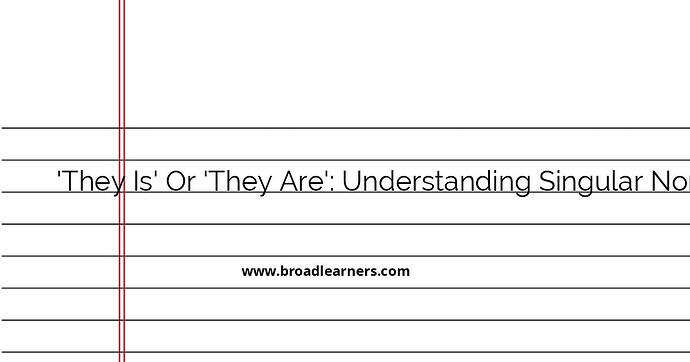Understanding the use of 'they' as a singular pronoun, especially concerning nonbinary individuals, is crucial for fostering an inclusive and respectful communication environment. This guide delves into the reasons behind the usage and provides grammatical understanding for learners at all levels:
- Singular 'They': Overview
- The singular use of 'they' has grown as an inclusive pronoun for individuals who do not identify within the binary gender framework of 'he' or 'she.' This usage is recognized in major style guides due to its importance in affirming the identities of nonbinary individuals.
- 'They is' vs. 'They are'
- While using 'they' as a singular pronoun is increasingly common in both spoken and written English, the verb form that follows remains plural. Therefore, 'they are' remains grammatically correct, even when referring to a single individual. 'They is' is considered incorrect in standard English grammar, although language is always evolving, and context matters.
Examples and Detailed Explanation
Example 1: Singular 'They' in Action
Consider the sentence:
Alexis said they are coming to the meeting later today.
Here, 'they' refers to one individual, Alexis, who identifies as nonbinary. The use of 'are' maintains grammatical parity with the traditionally plural pronoun.
Example 2: Comparing Usage
Contrast between incorrect and correct sentences:
- Incorrect: Jordan said they is going to the shop.
- Correct: Jordan said they are going to the shop.
The second sentence conforms to accepted grammatical guidelines while recognizing Jordan's nonbinary identity.
Example 3: Contextual Dialogue
Person A: Taylor forgot their notebook again, haven't they?
Person B: Yes, they are always misplacing things!
This dialogue showcases proper use of singular 'they' both in subject and object forms, maintaining consistency with the plural verb 'are.'
Embracing the singular 'they' in everyday language not only helps in adhering to evolving grammatical standards but also provides more inclusive communication. The singular 'they,' while grammatically unique, exemplifies English's adaptability and reflects our sociolinguistic progress.
For more insights, refer to established resources which discuss the evolution and recognition of nonbinary pronouns in professional and social contexts.
Did I miss anything? Respond below
